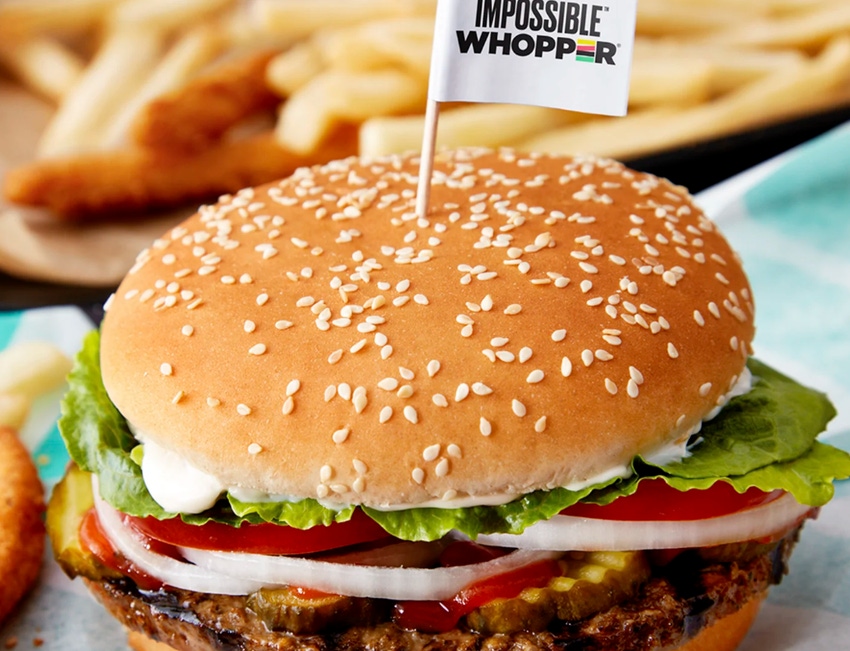Beef is beef, and calling a plant-based patty or cell-cultured proteins “beef” or “meat” is doing a disservice to producers and consumers alike.
April 8, 2019

I love consumer choice — I really, really do. I love that I can walk into my grocery store and have an abundance of foods that I can tailor to fit my family’s needs and taste buds.
However, with an abundance of choices often comes confusion as labels scream loudly with a myriad of claims such as — vegetarian, grass-fed, organic, antibiotic-free, gluten-free, all-natural, pasture-raised, GMO-free and the list goes on.
This can be overwhelming for consumers, and I think anything that helps simplify choices made at restaurants and in grocery stores is a good thing.
A good example is the terms we use to describe certain foods. If I want apples and purchase a bag of Pink Ladies at the grocery store, I expect to find Pink Lady apples in that bag. I wouldn’t want to find something else in my bag, like grapes or oranges.
But they all have fructose, so why can’t we just call them all fruit and call it a day?
That sounds ridiculous, doesn’t it? We have clear and distinct terms for various types of fruit to help distinguish these items from one another in the produce section.
If the produce aisle is so clear, why are retailers insisting on creating confusion in the meat aisle? If I want to buy beef or another meat product, I expect it to have come from a cow, a pig or a chicken.
That’s why I have a hard time understanding why plant-based protein patties can be called “veggie burgers,” or why protein cells grown in a petri dish can be called meat.
Nomenclature matters in discussions like this, and our consumers deserve transparency.
The European Union has it figured out. New proposed food labeling rules would require vegetarian burgers to be renamed as “veggie discs.” Moreover, the rule would ban the use of words like “burger,” “sausage,” and “steak” to anything that does not contain actual meat derived from animals.
Read more about the rule by clicking here.
Yet, in the U.S., it seems like alternative protein companies are allowed to use our nomenclature (and our industry’s reputation for a great-tasting product) and slap it on their fake, alternative protein patties.
For example, there’s Sonic’s “Slinger,” a burger patty made with 30% mushrooms. Then there’s the Beyond Burger, a patty made from gluten-free pea protein and colored with beet juice, which is available at grocery stores nationwide. And of course, there's the popular Impossible Burger, a wheat-based patty enriched with heme to mimic the meaty flavor, aroma and cooking properties of animal meat.
In March, the Impossible Whopper was introduced as the newest item on Burger King’s menu.
And, unlike Burger King’s veggie burger which is promoted to appeal to the vegetarian crowd, the Impossible Whopper is being marketed to meat eaters.
In an advertisement about the Impossible Whopper, Burger King secretly serves consumers the plant-based version of their iconic Whopper. The commercial shows avid lovers of the beefy burger shocked and awed that the burger they just ate didn’t actually contain any beef.
Now color me confused, but that ad seems awfully tone deaf to me. At a time where consumers want transparency and honesty in labeling, Burger King is tricking their customers to unknowingly eat the plant-based version of their best-selling beef menu item.
When I order beef at a restaurant, I expect to be served beef — period. Yet, if I mistakenly order the Impossible Burger, thinking it’s a new beef burger, I will actually get a patty made of water, textured wheat protein, coconut oil, potato protein, natural flavors, soy, yeast extract, salt, soy protein isolate, knojac gum, anthem gun, vitamins, zinc and heme.
Yuck. And yes, “veggie discs” seem much more appropriate here.
You can learn more about Burger King’s Impossible Whopper by clicking here.
Moral of the story, words matter. What we call a food product matters. Information matters. Transparency matters. Call a protein patty made of textured wheat proteins and yeast extracts “meat” or a “burger” is not only insulting to the nation’s beef producers, but it’s doing a disservice to our consumers, too.
The opinions of Amanda Radke are not necessarily those of beefmagazine.com or Farm Progress.
About the Author(s)
You May Also Like





